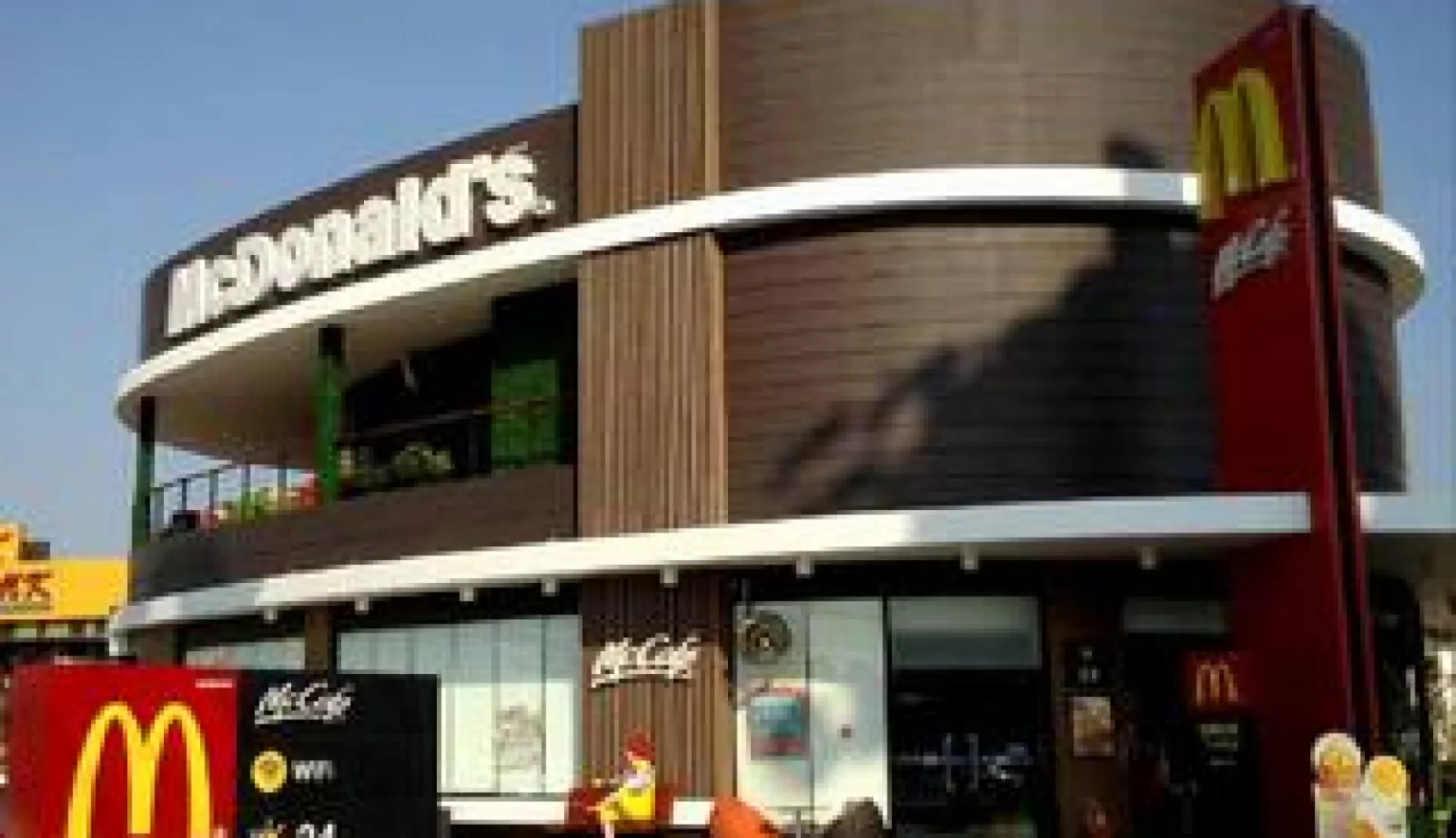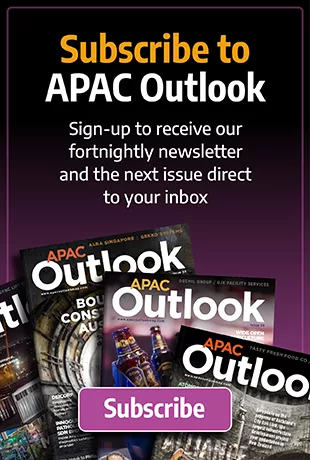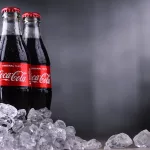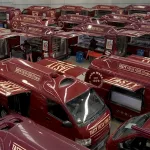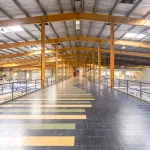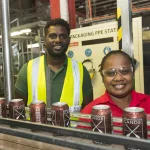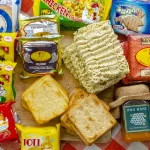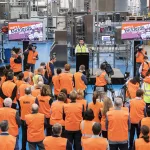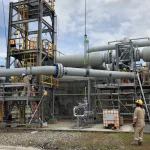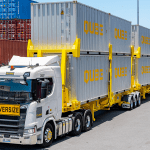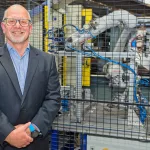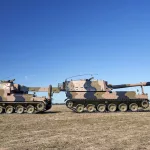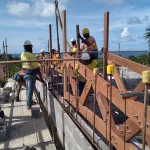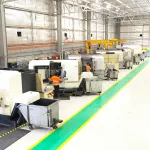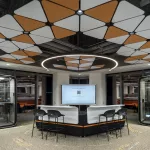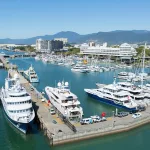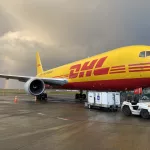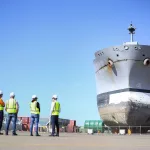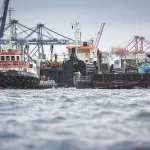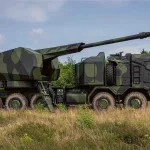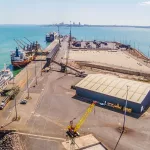APAC Outlook talks to Hester Chew, Chairman of Executive Committee and CEO of McThai, the sole McDonald’s franchisee in Thailand.
THEY’RE LOVING IT
McDonald’s sells more than 75 hamburgers every second and its famous golden arches are recognised by millions around the globe.
The quick service restaurant chain has 34,000 restaurants in 119 countries.
What’s its secret? McDonald’s has mastered the market with localisation. Nowhere is this truer than Thailand, where it has 183 restaurants, serving eight million customers per month. “We do have localised items on the menu,” says Hester Chew, Chairman of Executive Committee and CEO of McThai, the sole McDonald’s franchisee in the country. “We have items that are specific to Thailand like the Samurai Pork Burger, the Spicy McWings and the Spicy Chicken Teriyaki and Rice.
“That is absolutely important; you have to appeal to your market.”
Although some items are localised, McThai’s core products are the same – and of the same quality – as you would find in any McDonald’s globally.
“We have global supply system. Our French fries are from the U.S., our cheese is from New Zealand and in the last couple of months have been importing beef from Australia.
“McDonald’s look at the regional supply system to see who has the best ingredients, quality and price to match the product and we work on a system of delivery.”
Mr Chew has extensive experience in the food service industry and upon joining McThai quickly introduced some new ideas.
He knew exactly what he wanted – the introduction of separate McCafé premium coffee counters to most of the McDonald’s restaurants has been one of his most highly successful moves.
“When we came in, we looked at the fundamentals,” Mr Chew says. “In the first six months we looked at staffing, promoted some from within, brought in new blood into the organisation and we repositioned incentive schemes and the way we look at the business in terms of our customer service, the way our restaurants look, how we were positioned, what consumers wanted and the menu items we had – basic areas. We retrained managers to look at restaurant level P&L and it was about going back to basics and good, well formulated planning.”
The first McDonald’s restaurant in Thailand was opened in 1985.
Things have changed a lot since Mr Chew came into the business.
“Today, we are in a much healthier state,” he says. “Things have gone from good to better. We have a steady business. We’ve grown from 93 restaurants in 2006 and we will be at 200 restaurants by year end. I think the growth has been good.”
One of the key changes is the way its restaurants look and McThai has spent a lot of time and resources on remodelling them, based on the allegro concept that has seen new lighting and decor in the restaurants, inducing a “more urban edge”.
“We wanted to push our McDonald’s stores from being traditional quick service restaurants into lifestyle restaurants,” Mr Chew says. “In terms of the look and feel it is about colours, and in terms of seating, we have a range of seats – sofas and cushions etc. We make the restaurants as welcoming as possible but with an urban edge. Up to about two and a half years ago we used what we called the millennium concept. Last year we started using allegro, which is what McDonald’s has been using across the region. 90-odd percent have switched to the new look which is much more towards a lifestyle restaurant.”
In 2010, McThai introduced the concept of “Drive Thru” quick service restaurants, another successful venture.
“Our Drive Thrus are ideally situated and, as well as a fast take-away service, they have lots of convenience. Convenience is very important. In an area like Bangkok it is key.
“We have 43 Drive Thrus and we should have 50 by year end.
“I think our breakfast plays an important part here too – car use and traffic in Bangkok is increasing so they will come out, have a quick breakfast and takeaway at the window and move on with their daily lives. The majority of our sales of breakfasts are in or through our Drive Thru restaurants and over a fifth of our business is breakfast in the morning.
“Those convenience factors are key – location and plenty of large spaces and parking.
“The convenience is what we look at.” Other milestones achieved by Mr Chew include taking McDonald’s 24- hour in 2007 and bringing in delivery 24 hours a day in Thailand.
“Delivery is a popular service in Asia, not just Thailand. You’ll find similar services in Singapore, Malaysia, Philippines and Indonesia. It is very popular in Asia.
“Our delivery is through motorbikes. That gets through the traffic,” Mr Chew says.
McThai’s vision is to be the quick service restaurant of choice in Thailand, growing profitably and have 500 points of distribution, including McCafé and Dessert Centre, by 2015.
Of course a company is nothing without its people; McThai and Mr Chew were quick to realise that.
“We offer a caring work environment, develop our people and empower them to make a difference at work, at home and in Thai community. We have our corporate culture called “STEPUP” which has become the everyday working culture of McThai. Our strong corporate culture creates high engagement and helps in driving the company’s strong values. With the earlier mentioned factors, McThai has recognised as Best of the Best Employers in Thailand and Regional Accredited Best Employers in APAC in 2013.” STEPUP comprises S – Sanook at work, meaning happy staff having fun (Sanook) and being enthusiastic about their work. T – Team to Win, meaning all the team sharing objectives and having trust and confidence in every person’s contribution. E – Exceed Customer Expectations, understanding and then exceeding customers’ expectations. P- People, supporting the development of staff and mutually praising success. U – Ultimate Ownership, working as if staff owned the business, daring to solve problems creatively. And P – Passion to Win, having dedication and hunger for success to be the leader.
It’s paid off. McThai has been recognised as Best of the Best employers in Thailand and Regional Accredited Best Employers in APAC in 2013. The award was issued by AON Hewitt and Sasin Graduate Institute of Business Administration Chulalongkorn University, who looked at employment practices at 182 leading companies in Thailand.
McThai was also recognised as Best Employer in Thailand and in APAC in 2011.
“I am happy and proud that McDonald’s Thailand has been recognised in this way because these awards reflect our employees’ trust and engagement towards the company, their praise for the company, and their dedication for it to achieve success, consistent with our management policies which resulted in doubledigit sales growth indicating business success,” Mr Chew says.
And the future is bright.
“For us it is working on internal processes and that is obviously ongoing. Customer service is another area of continual improvement and you never stop on that,” Mr Chew explains. “I think we have focused very well on our people development and that has been important for us as a business and in the way we have since performed. We will continue that. It means we offer a value proposition.
“I think also in the next couple of years we will continue to grow our business and see how we can be relevant to our consumers. For example, in the Provinces of Thailand it is very different to the major metropolitan areas like Bangkok. You can’t approach Provinces in the same way. We will see how we can be relevant there.
“Having availability of chicken products is also important for us.”
For the future, Mr Chew would like the Thai government to drive the economy. That would attract foreign investment and create jobs in the country.
“That is always important,” he says. “But generally am I optimistic? Yes. There are plenty of opportunities and lots of growth potential. I don’t have a time to put to this but I believe Thailand can have more than 400 McDonald’s restaurants down the road, on a long term horizon.
“For future engagement, technology will be important – whether it is cashless payment, mobile apps or the internet. All of that will come much more into play in the next six to nine months.”
As for key success factors, Mr Chew stresses: “The McDonald’s business is a people business, providing food and beverage services in its restaurants as well as home delivery. Therefore, we give top priority to our people, as it is they who deliver happiness and satisfaction to our customers. That is the main engine of our business.”
To learn more visit www.mcthai.co.th.

